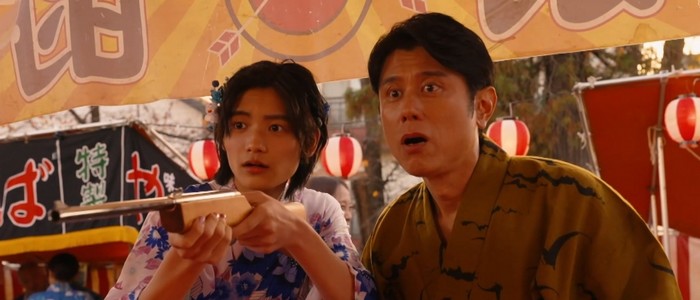
Don't Care for an Old Man's Underwear is a Japanese series about a homophobic father who feels alienated from his family. The main character is an ordinary office worker from a middle-class background. Due to his prejudices, his children won't talk to him. His teenage son is so overwhelmed that he refuses to leave the bedroom. Determined to mend these broken relationships, the protagonist must change his ignorant views.
Behind its silly humour, Don't Care for an Old Man's Underwear is an uplifting LGBTQ+ drama. It empathizes with those exploring their sexuality, gender, and identity. Some scenes strike such an emotional chord that they mirror my own experiences. I love how the series depicts family relationships, highlighting the complex dynamics between parents and children. While the BL romance is meh, I adore the story's messages about compassion and self-love.
Don't Care for an Old Man's Underwear Summary
Title:
おっさんのパンツがなんだっていいじゃないか!
Series Info:
Japan (2024)
Genre:
Comedy
About:
Don't Care for an Old Man's Underwear is a nice & heartwarming comedy.
Plot
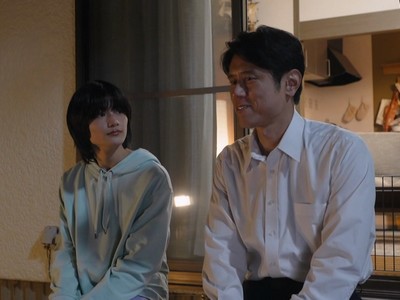
Makoto and his wife Mika live with their two children, Moe and Kakeru. Recently, their teenage son Kakeru has stopped going to school. He locks himself in his room all day and refuses to come out. A warning sign on his door forbids anyone from entering. Kakeru's insecurities stem from feeling distressed about his identity. From experimenting with makeup to wearing pretty accessories, Kakeru notices he is unlike other boys his age. He feels too self-conscious to face anyone in public.
Makoto is an old-fashioned man with rigid views on gender and sexuality. He often makes misogynistic comments about how men and women should behave. He is openly homophobic toward those who don't fit his gender norms. His prejudices have alienated him from his children, especially Kakeru, who despises his father's intolerance. Moe sides with her younger brother and barely speaks to her dad, leaving Mika to mediate between them. She sympathizes with her children's frustrations but also tries to support her husband.
Mika's friend has a son. Daichi, a gay university student, befriends Kakeru and offers guidance. When Daichi visits Kakeru's house to discuss his struggles, Makoto erupts in outrage. He accuses Daichi of corrupting his son and turning him gay. Daichi stays calm, laughs off the homophobic remarks, and tries to reason with Makoto. However, Kakeru responds emotionally. Kakeru yells at his father, expressing how much he hates him. Makoto is startled by his son's animosity toward him.
Makoto is an office worker who manages a team of younger subordinates. He notices their coldness toward him, especially Shimura. She resents his misogynistic leadership, like ordering her to make tea and dismissing her work. Makoto is shocked when he discovers that Harinishi, a male coworker, wears a bra under his business suit. While Harinishi seems unbothered, Makoto is disturbed and confused. He feels out of touch, realizing his views clash with the younger generation.
Makoto talks to Daichi alone. Despite their earlier clash, Daichi remains in good spirits and holds no grudges. He comforts Makoto, recognizing him as a concerned father who wants to reconnect with his children. As Makoto opens up and shows his vulnerable side, Daichi reassures him that it's never too late to change. He encourages Makoto to update his views and improve his family relationships. Feeling hopeful, Makoto becomes friends with Daichi. As they spend time together, Daichi influences Makoto to be more tolerant and understanding.
Don't Care for an Old Man's Underwear Cast
Characters
Makoto
Taizo Harada (原田泰造)
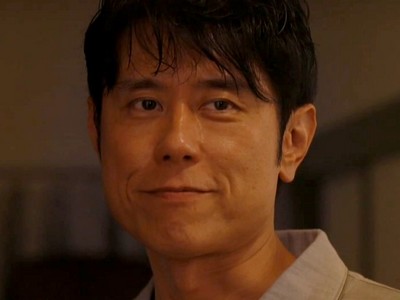
Makoto is a traditional man with rigid views on gender and sexuality, which have alienated him from his family. His teenage son, Kakeru, despises his intolerance, while his daughter, Moe, barely speaks to him. At work, Makoto feels disconnected from younger colleagues whose values clash with his outdated mindset. After meeting Daichi, Makoto begins to confront his prejudices.
Taizo Harada
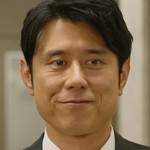
Taizo Harada (原田泰造) is a Japanese actor. He is born on March 24, 1970. His portfolio includes the lead role of the 2024 drama, Don't Care for an Old Man's Underwear.
Kakeru
Kairi Jyo (城桧吏)
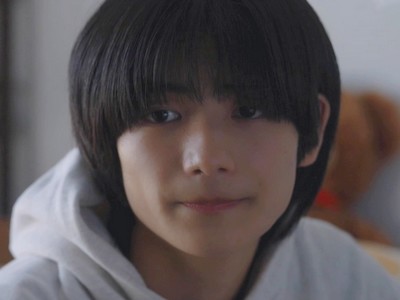
Kakeru is a teenager who stopped going to school recently. He feels overwhelmingly self-conscious about his identity. He locks himself in his room, refusing to come out or interact with others. His father's prejudices make him feel even more isolated at home. With Daichi's guidance, Kakeru slowly finds the courage to overcome his struggles.
Kairi Jyo

Kairi Jyo (城桧吏) is a Japanese actor. He is born on September 6, 2006. His portfolio includes the 2024 series, Don't Care for an Old Man's Underwear.
Daichi
Sota Nakajima (中島颯太)
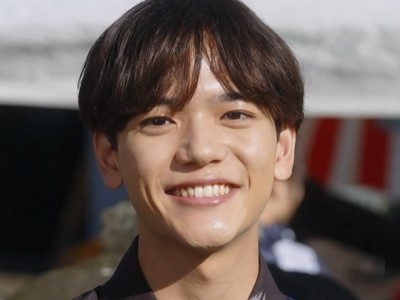
Daichi is a gay university student. He befriends Kakeru, offers him guidance, and becomes a positive influence. Despite Makoto's initial hostility, Daichi stays calm and tries to reason with him. Over time, Daichi helps Makoto see the need for change. Daichi is dating Madoka, his university senior. They face an uncertain future, especially since Madoka isn't out to his family.
Sota Nakajima

Sota Nakajima (中島颯太) is a Japanese actor. He is born on August 18, 1999. His first BL role is the 2024 drama, Don't Care for an Old Man's Underwear.
Supporting Cast

Mika
Yasuko Tomita (富田靖子)

Moe
Azusa Ohara (大原梓)

Carlos

Mihoko
Yuki Matsushita (松下由樹)
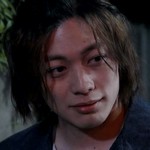
Madoka
Keisuke Higashi (東啓介)
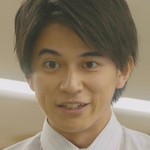
Haranishi
Takuya Inoue (井上拓哉)
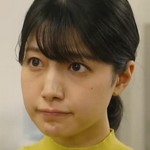
Shimura
Yua Ashihara (芦原優愛)

Karina
Ayaka Namiki (並木彩華)
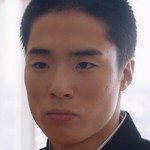
Hasegawa
Shoma Sakaue (坂上翔麻)

Shizuka
Nao Tsubaki (椿奈央)

Sumire
Elisa Matsumoto (松本恵莉紗)

Miyoko
Ayaka Mitsumoto (三本采香)

Apple
Ayano Kudo (工藤綾乃)

Horiuchi
Kazuyuki Aijima (相島一之)

Furuike
Tetsu Watanabe (渡辺哲)

Coworker
Arisu Ito (伊藤ありす)

Coworker
Joe Hori (堀丞)

Coworker
Keisuke Sakurai (櫻井圭佑)

Seojun
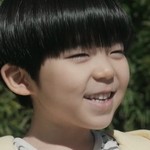
Natsuki
Yahiro Nagase (永瀬矢紘)
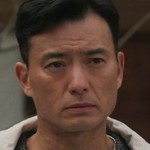
Natsuki's father
Satoshi Tokushige (徳重聡)

Natsuki's mother
Akiko Hinagata (雛形あきこ)

Milk

Tanuki statue

Sheep & Bear
Cast Highlights
Yuki Matsushita
Mihoko's actress has portrayed the mom character in several BL dramas, including My Love Mix-Up (2021) and Cherry Magic: The Movie (2022).
Keisuke Higashi
Madoka's actor appears in the 2024 short BL drama Me, Him and You.
Don't Care for an Old Man's Underwear Review
Review
Drama Review Score: 8.6
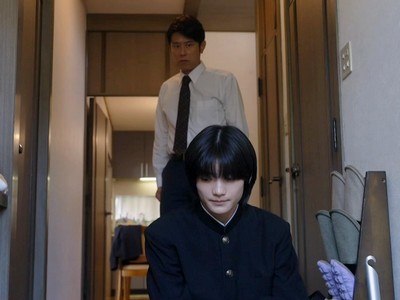
Don't Care for an Old Man's Underwear is a heartwarming comedy with meaningful LGBTQ+ themes. Beneath its cheerful exterior lies a serious story about a bigoted father, an anxious teenager, and their fractured relationship. Some moments in this series hit too close to home. The adolescent trauma and the family exchanges strike an emotional chord, reminding me of my past experiences. Don't Care for an Old Man's Underwear feels less like watching a drama and more like looking eerily into a mirror.
At the start of the story, Kakeru is consumed by insecurities. As a boy who loves makeup and pretty accessories, he struggles with not fitting into the traditional ideas of masculinity. To cope, he isolates himself in his bedroom, avoiding interactions with others. His battle against inner demons is devastating, and I get an instinctive urge to protect him. While Kakeru doesn't identify as gay or trans, his emotional turmoil resonates deeply with LGBTQ+ youths. This series captures the agony of growing up different from everyone, feeling painfully self-conscious, and questioning your gender, sexuality, or identity.
I love how this drama explores the family dynamics with depth. It focuses on Makoto, an ignorant father determined to change his views. His growth is inspiring, even if he stumbles with old habits and tasteless comments. He goes on a heartfelt self-improvement journey to ensure his son feels loved and accepted. The mother and sister also have thoughtful storylines. I appreciate that the series expands on Mika's perspective, portraying her as more than just a worried mom. She's a fully realized character with her own feelings and experiences beyond the role of a parent.
The story depicts Kakeru's character development sensitively, and seeing him regain his confidence feels uplifting. Much of his positive transformation is thanks to Daichi, the wise gay mentor. Like an LGBTQ+ helpline in human form, he always offers comforting advice or intelligent opinions. What I admire most about Daichi is his graciousness. He smiles through Makoto's homophobic remarks and gently challenges his prejudices. Daichi takes the high road when others go low. This exemplary young man is a role model, inspiring us to win over people with kindness.
The lead (Taizo Harada) is a dynamic performer who excels in all the comedic scenes. As Makoto, he perfectly embodies a conflicted and bewildered father. Viewers will grow attached to Daichi's actor (Sota Nakajima), a telegenic cutie in an endearing role. However, his love interest (Keisuke Higashi) constantly overacts during dramatic scenes. Daichi and Madoka's romance seems underwhelming because they don't mesh well together. The series handles many storylines well, but the gay couple is more like a plot device than an engaging relationship.
Don't Care for an Old Man's Underwear can be overly idealistic. As expected from a sentimental family drama, it includes big motivational speeches, characters who become quickly enlightened, and moral lessons with predictable outcomes. However, it won't give us the expected happy ending. Daichi's storyline finishes bitterly, showing that some conflicts can't be resolved, just like in real life. Overall, Don't Care for an Old Man's Underwear easily earns my recommendation. This heartwarming series portrays LGBTQ+ topics with nuance, compassion, and sincerity.
Summary
Uplifting story
Don't Care for an Old Man's Underwear tells an uplifting story with LGBTQ+ themes. Although the characters struggle initially, the main focus is their growth, enlightenment, and self-acceptance.
Underwhelming romance
The lacklustre BL couple keeps this series from being one of my favourites. Daichi and Madoka's romantic arc feels more like a necessary plot device than a compelling relationship.
Dynamic acting
Makoto's expressive actor (Taizo Harada) nails the comedic scenes and captures the role of a bewildered father. Madoka's performer (Keisuke Higashi) overacts and diminishes the dramatic moments.
Bittersweet ending
Don't Care for an Old Man's Underwear has a bittersweet ending as Daichi's storyline finishes with heartbreaking cynicism. Just like in real life, not all conflicts can be resolved easily.
Realistic artistry
This series strives for realism. Everything appears relatable and down-to-earth, from the cozy home environment to the ordinary office setting. It avoids making anything look too fancy.
86%
Don't Care for an Old Man's Underwear is a feel-good family drama with meaningful LGBTQ+ themes. While the gay romance is disappointing, I adore the story's positive messages about empathy.
Don't Care for an Old Man's Underwear Episodes
Episode Guide
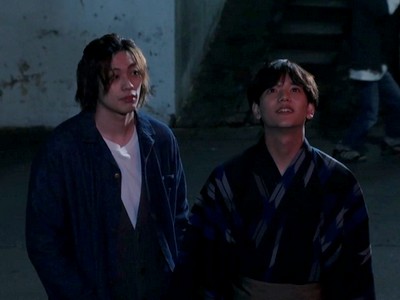
- Start Date January 6, 2024
- End Date March 16, 2024
- Episodes 11 episodes
- Episode Length 44 minutes
Don't Care for an Old Man's Underwear has a total of 11 episodes. Each episode is around 44 minutes long. It is a long BL drama, and you can finish the entire series in around 8 hours. Don't Care for an Old Man's Underwear started on January 6, 2024 and ended on March 16, 2024. After the original story, a 40-minute epilogue special was released on June 28, 2025. A movie sequel, Who Cares?: The Movie, was released on July 4, 2025.
Don't Care for an Old Man's Underwear is adapted from a Japanese manga. The original work is made by Nerima Zim (練馬zim). The live-action series won the 2024 Excellence Award for TV Drama in Programming category at the Japan Commercial Broadcasters Association Award.
Episode 1
Episode 1 Review
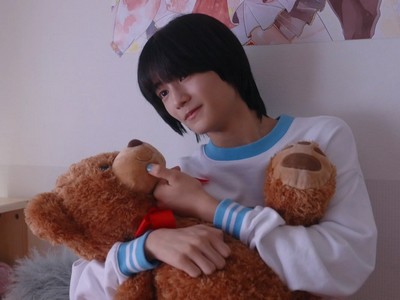
I love Moe's loyalty to her younger brother. Her father isn't mean to her, and she isn't targeted by his homophobic comments. Even so, Moe takes Kakeru's side and distances herself from their father's ignorance. When Moe notices Kakeru searching for makeup online, she doesn't patronize him. Instead, she offers him a job to earn his own money. Her words "You can spend the money on whatever you like" show her subtle encouragement without making a big show of it. Moe is the definition of a supportive older sister!
Initially, Daichi is meant to mentor Kakeru and help the troubled teen. I love how they bond over Kakeru painting Daichi's nails lol~ However, Daichi becomes more of a role model to Makoto instead. The heart of the story lies in Daichi's gentle interactions with the homophobic father, encouraging him to change his views. Despite their age difference, Daichi offers wisdom to the older man. Even though Makoto starts off with prejudices, Daichi remains gracious and focuses on the goodness in him. I really like how their bond develops over time.
Episode 2
Episode 2 Review
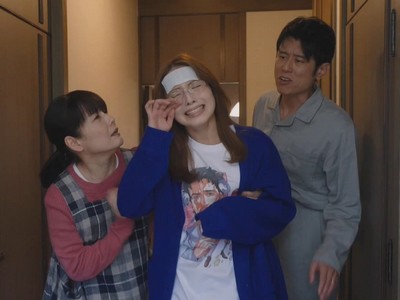
I love Moe's character, but her storyline in this episode isn't my favourite. The circumstances seem contrived, as if the series is making up reasons for the dad to attend the convention in his daughter's place. Also, we don't actually see him selling the manga. The story implies he ~learned his lesson~ at the end of the day, but I would've liked to see more proof. Still, I understand the positive message. Makoto learns to be open-minded instead of judging his daughter's niche interests.
I like how Daichi encourages Makoto to change his thinking. Daichi says, "I don't think values have anything to do with your age." This quote reminds us that holding onto outdated views isn't an inevitable part of aging. You can be a progressive thinker, regardless of your generation. Makoto doesn't become open-minded overnight, still falling back to his old habits. Yet, I like seeing him reflect on his mistakes and motivate himself to improve next time. The story jokes that ~Makoto obtained empathy~, but it's true. His self-awareness is the catalyst for his positive transformation.
The subplot with Makoto's coworker is interesting! Haranishi, a male employee, is confident about wearing a bra beneath his business suit. He thoughtfully explains how it gives him a sense of protection, comparing it to his ex-girlfriend's embrace. I admire how the drama normalizes this topic with both candour and compassion. It challenges Makoto's ideas of traditional masculine norms, pushing him to embrace a more diverse view. It also allows viewers to learn from Haranishi's perspective. Yeah, men can wear bras too!
Episode 3
Episode 3 Review
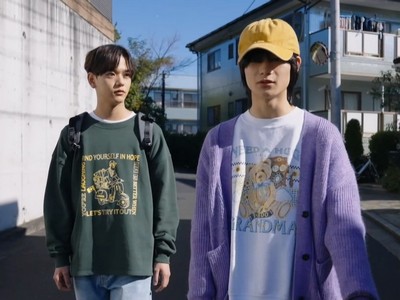
The bra enthusiast cracks me up. Makoto feels self-conscious and wants to speak about this topic quietly around the office. However, Haranishi uses his hands to mime putting on a bra, completely undermining Makoto's need for discretion lol. I like how Harinishi's actor (Takuya Inoue) portrays his character with an endearing earnestness. He always seems so cheerful and unbothered, as if talking about his love for bras is the most natural thing in the world.
Wow, I'm in awe of Daichi's empathy and intelligence. He talks about LGBTQ+ issues so thoughtfully, almost like a professional counsellor. I love how he explains Kakeru's identity crisis. "People who differ from the majority constantly ask themselves, who am I? Maybe Kakeru is still figuring it out. He's unsure who he wants to be or how he wants to be treated." Damn, this insight is so deep. At such a young age, Daichi can connect to someone else's pain and articulate complex emotions with incredible clarity. That's impressive!
My heart breaks for Kakeru. 💔 Kakeru isolates himself because he's so self-conscious about feeling different from everyone. Being in the presence of others makes Kakeru compare himself to them and notice his perceived inadequacies. Kakeru dislikes surrounding himself with people his age. "They remind me why I can't be happy like them." Oh, poor baby~ The moment that gets me is when Kakeru finally leaves his house, buys a drink from the vending machine, and runs back home to celebrate his courage. He's taking baby steps to reintegrate with the world.
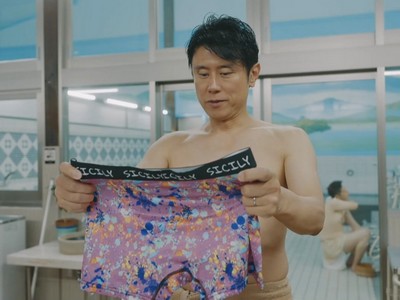
Makoto tells Daichi's mom, "It's a shame he's gay." EXCUSE ME??? Just when I thought his character has made progress, he drops this homophobic remark of nuclear proportions. Instead of reacting emotionally, Mihoko uses a thoughtful analogy to challenge his prejudices. She approaches this moment as a learning opportunity rather than a confrontation. Daichi's kindness comes from being raised by such a progressive mother. I'm relieved that Makoto admits his mistake and takes the lesson to heart afterward.
The story's funny title, Don't Care for an Old Man's Underwear, comes from Makoto's self-realization at the end of this episode. He compares Daichi's sexual orientation to a pair of undergarments. Whether boxers or briefs, it's something so personal that should be nobody else's business. However, I'm not sure if I completely agree with this analogy. Underwear can be changed and discarded, whereas sexuality is inherent. Even so, I appreciate that Makoto is trying to be open-minded. Plus, it's hilarious when he delivers this big speech and then smacks his ass afterward. lmao~ That's allyship!
Episode 4
Episode 4 Review
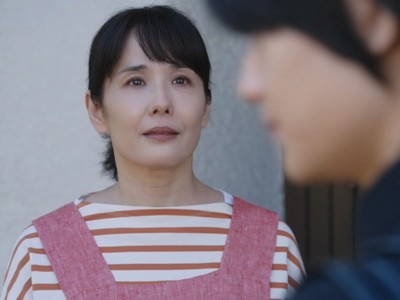
In this episode, Kakeru must return to school, which distresses him. During his chat with Daichi, there's a shot of Kakeru nervously playing with his fingers. His thumb is painted with nail polish, yet he tries to hide it. This simple moment reflects his inner conflict. Kakeru knows he can't keep hiding forever, but his instinct is to retreat socially. He's conflicted between his desire to express himself (with makeup, nail polish, and pretty accessories) and the fear of being judged.
Unlike his dad, Kakeru's mom has shown compassion from the start. Mika is supportive and avoids pressuring her son, knowing he's already mentally strained without her adding to his burden. Still, she worries about him in silence. Mika pays attention whenever Kakeru leaves the house. She also gently places meals by his door, waiting a few seconds for his response. Her quiet actions reflect the sadness of a sympathetic parent who can't connect with her child. The story reminds us Kakeru's struggles don't just affect him. They weigh heavily on his entire family.
Kakeru knows he's upsetting his mom, even if she doesn't show it. Disappointing her adds to his anxiety. As usual, Daichi offers perfect advice. "What if you thought about it like this? I'm not bad for causing Mom trouble. Instead, I'm grateful to her for respecting my opinion even if it causes her trouble." He also suggests, "I admire myself for trying, even if it doesn't work out." Oh wow, Daichi never misses. He always knows what to say as encouragement. He's like a powerful gay guru, family counsellor, and life coach all rolled into one. Everyone needs a Daichi in their lives!
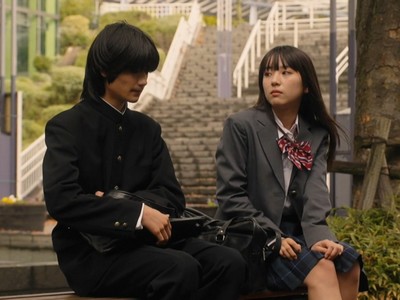
Makoto worries his son might get bullied at school. Most stories would follow this predictable route, but this series creates tension from a more clever angle. Kakeru doesn't face any homophobic torment and even gets along with his female classmates. However, he clashes with Karina, who accuses him of stealing her role as the makeup expert. This argument triggers Kakeru's self-consciousness as a man occupying spaces traditionally reserved for women. It heightens his feelings of not belonging and amplifies his identity crisis.
Kakeru's first day back at school feels like a failure. His panic attack outside the classroom is particularly heartbreaking to watch. Despite some highs and lows, his insecurities make him dwell on the negatives. While Makoto buys a cake to celebrate his son's effort, Kakeru retreats to his bedroom. He's overwhelmed with shame and feels lost all over again. However, Makoto refuses to lose hope. He gives Kakeru a cute gift, reminding him of his family's unconditional love.
Episode 5
Episode 5 Review
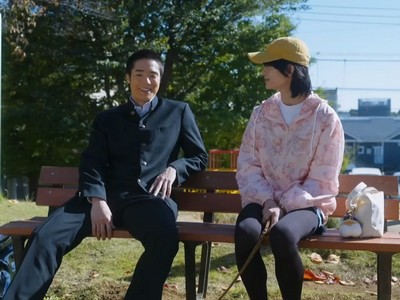
I love the scenes of Makoto buying LGBTQ+ books and parenting tutorials. The series portrays it comedically, especially with how overboard he goes with the reading materials, almost making it seem performative. Yet, it's sweet how hard he wants to understand his son better. Makoto has come such a long way since the start. Before, Makoto said he had no hobbies. Now, his new passion is becoming more informed. His kids inspire him to grow into a better person, and it's heartwarming to watch.
I like the baseball player introduced in this episode. Instead of dismissing Kakeru's interest in makeup, Hasegawa seeks his classmate's expertise to help with his skincare problems. The story highlights not every teenage boy is judgmental. Some, like Hasegawa, are respectful and genuinely curious. He asks why Kakeru has been skipping school and wonders if the other guys bothered him. From Hasegawa's perspective, the question seems reasonable, but it triggers Kakeru's insecurities. It's less about how others treated him and more about how being around them made him feel out of place.
Episode 6
Episode 6 Review
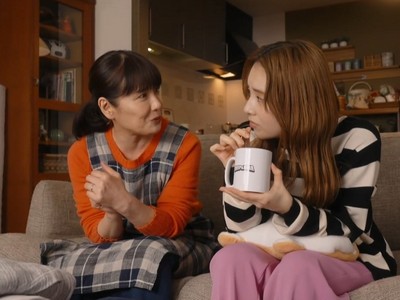
I like this episode's focus on Mika, which expands her character beyond the worried mom who cooks and frets over her child. The story portrays her as someone overlooked by her family, with her unconditional love often taken for granted. When Mika snaps, albeit mildly and meekly, it's a wake-up call for everyone. Her husband and children apologize, realizing how much she has compromised for them. Even Kakeru joins them at the dinner table again, hoping to bring joy back into his mom's life.
Unfortunately, I'm not invested in Madoka's storyline. I hate to admit this, but the actor's performance takes me out of immersion. I also think the character is one-note, defined primarily by his struggles with his sexuality. That said, I like how Daichi doesn't pressure his boyfriend to come out or make a decision about their future. Daichi's mom is supportive of her gay son, but he can still empathize with Madoka, whose family may be less tolerant. Once again, Daichi displays compassion and understanding. He constantly impresses me with his sensitivity to other people's feelings.
A recurring theme in this episode is time. The story doesn't insist that you must make decisions immediately, but there's an opportunity cost for waiting too long. When Mika opens up, she talks about using her time to look after her family instead of pursuing her dreams. She says, "What you do when you're young and healthy matters more than you think. A year then and a year now is different." Her quote ties to Madoka, Moe, and Kakeru's subplots as they ponder their futures. Sure, take your time to think things through, but beware that indecision may cause a lifetime of regrets.
Episode 7
Episode 7 Review
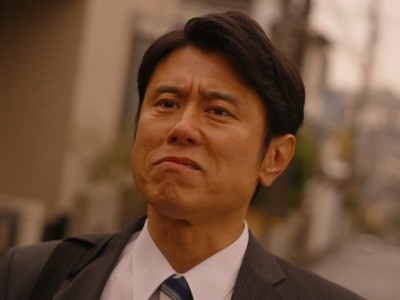
Kakeru wants to pursue a career in makeup, reassuring his parents that he has a goal and no longer feels lost. However, his family remains concerned about another aspect of his future: his love life. Makoto oversteps boundaries by prying on his son's sexuality. Kakeru lashes out at his dad, feeling pressured to define himself before he's ready. This moment reminds us that while Makoto has grown a lot, he still has more to learn about respecting his son's self-discovery.
Although Kakeru responds harshly to his dad, he seems more honest around Hasegawa. Kakeru admits he's undecided. Some people discover their attraction early on, while others take longer to be sure. Like Shawn Mendes tells us, while strumming a guitar in a Brazillian concert, "The real truth about my sexuality is that I'm just figuring it out. I don't really know." Exactly, Shawn. Kakeru is the same way. Hasegawa reassures Kakeru that not knowing is perfectly okay. "I think it takes a lot of courage not to answer." Aww, what a mature response.
As a BL watcher, I can't help myself. I found myself shipping Kakeru and Hasegawa just a little. Why not? The baseball player seems sweet! However, Kakeru's priority should be sorting out his life and stabilizing his emotions. There's no rush to enter a relationship when Kakeru still needs time to heal. RuPaul always tells us, "If you can't love yourself, how in the hell are you gonna love somebody else?" This self-love is the most significant journey for Kakeru. Before finding a romantic partner, he must rebuild his confidence first.
Episode 8
Episode 8 Review
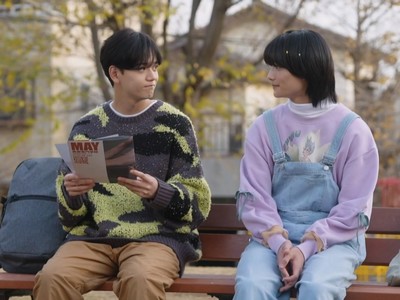
I don't give a damn about Daichi and Madoka as a couple. Their relationship scenes lack spark, and the focus on Madoka's anxiety about coming out to his family overshadows any romance between them. *whispers quietly* To be honest, I wouldn't care if they broke up. 🙊 That said, I also don't ship Daichi with Kakeru either. The idea of Kakeru falling in love with his mentor feels wrong. Daichi is so integral to Kakeru's recovery that making them a couple would undermine their relationship.
Kakeru struggles with not living up to his father's expectations as the ideal son, a familiar fear for many gay children. His statements, "I'm not the son my dad wished for" and "If I'm honest with my feelings, my dad would be disappointed in me", reveal his perceived inferiority. Before, Kakeru hated his dad and didn't care what he thought. But now, Kakeru finds himself seeking parental approval, which causes anxiety. As usual, Daichi offers comforting advice, "You get to decide when to tell him your truth." Well said, Daichi. Controlling your own narrative reduces the pressure of meeting someone else's expectations.
Makoto comforts Madoka about coming out to his family. "It's not your fault you can't talk to your parents. Japanese society made it hard. Otherwise, it should've been so easy." Spot on. Makoto gets it! I love how the series connects Kakeru and Madoka's plots, showing how their worries mirror each other. As Makoto advises Madoka, he indirectly addresses his son's concerns. Also, can we take a moment to appreciate Makoto's growth? He transforms from a staunch homophobe in Episode 1 to offering empathetic advice to closeted gays in Episode 8. What a journey!
Episode 9
Episode 9 Review
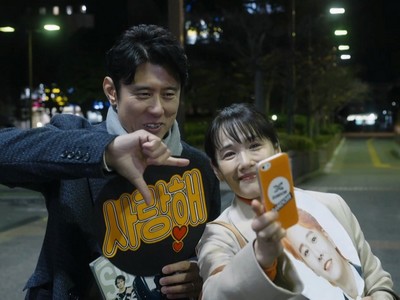
A marriage proposal??? That's so random lol. I didn't realize Daichi and Madoka's relationship was that deep. I guess this is Madoka's way of justifying coming out to his family. If I'm marrying this guy, I need to be brave for him. Plus, a lifelong commitment can reassure his parents that he's serious about his partner. Still, I'm not getting a sense of ~romance~ from the couple. I wish the series had developed Daichi and Madoka's love story more instead of only focusing on coming out or parental approval.
Initially, Mika's idol obsession seemed like a quirky trait, but it takes on a deeper meaning. She reveals it's the first time she focused on something outside her family, like a form of escapism to "take me away from my spinning thoughts". A hobby can be a lifeline, especially for parents. The story emphasizes the importance of not letting your entire life revolve around your kids. Give them space while also giving yourself room to breathe. I also love that Mika and Makoto are both boy band fans now. This shared interest is so cute and wholesome. Married couple goals!
Episode 10
Episode 10 Review
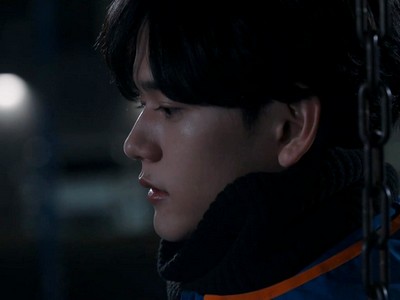
OMG I'M SOBBING. Why won't Daichi's dad accept him!?!? 😭 Daichi has been the loveliest guy throughout the whole series. He's kind, thoughtful, and always optimistic. This is the type of exemplary child any parent would be proud to have. Yet, Daichi's father starts whittling away at his son's confidence with homophobic remarks. He combines ignorance with twisted logic and emotional manipulation. Despite knowing his father is in the wrong, poor Daichi still takes these hurtful words to heart.
I feel so bad for Daichi. He repaired Makoto's relationship with his son, helping another family heal. Yet, his own father treats him terribly. Despite giving Kakeru the perfect advice on facing prejudices, Daichi struggles to follow it himself. "I could argue back if it were someone else. But when it's my dad speaking, it cuts deep." As he says this, Daichi places his hand over his chest and clutches his fist, as if his heart is literally tightening. Oh, that intimate gesture really gets to me. I just want to comfort him! I'm devastated because Daichi can't find the same happiness he helps others achieve.
Makoto has a quirky superstition of pointing at the tanuki statue in front of his house. He began this ritual after Moe recovered from her illness. While he knows it's meaningless, he continues out of habit. At the end of the episode, Makoto storms off to yell at Daichi's homophobic father and passes the statue without pointing at it. This moment symbolizes his defiance. Challenging someone else's parenting is unconventional, but Makoto finds the strength to confront injustice instead of clinging to traditions.
Episode 11
Ending Review
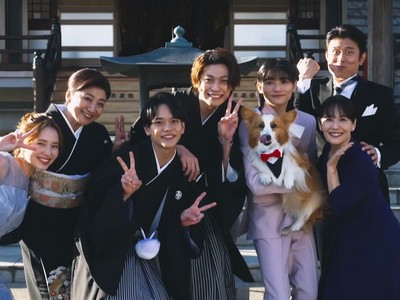
Daichi delivers a poignant quote at the start of the episode. "It's starting to feel unfair. Why are there so many obstacles to overcome if you're gay? When I think about it, I lose the confidence to fight." OMG DAICHI IS BROKEN. SOMEONE FIX HIM. 😭 Until now, I thought this story was ~too idealistic~ and Daichi's character almost seemed ~too perfect~. But now that Daichi is in pain, I don't want to see him suffer for one second longer. Give me back the pure and perfect version of Daichi now!!!
Makoto hesitates to help Daichi because he doesn't want to overstep boundaries. As close as they have gotten, he isn't Daichi's real father. What gives him the right to parent someone else's child? However, Makoto changes his thinking in the finale. Instead of seeing himself as a father figure, Makoto realizes he is Daichi's friend. And like a true friend, he must step in and meddle when something is wrong. Makoto is enlightened after his wife says, "My love pushes back and burns even brighter." While Daichi's father spews hatred, Makoto and his family will fight back by showering Daichi with the love he deserves.
Despite Makoto's best efforts, Daichi's homophobic father won't budge from his prejudices. After an entire series of idealism, the finale delivers a cynical message: not everyone will change. For some LGBTQ+ youths, the harsh reality is that their parents may never accept them for who they are. As Daichi cries into his mother's arms, the story doesn't linger on his rejection. He lost a crappy parent, but his father lost the perfect son. Life goes on. The final scene shows Daichi happily getting married. He's surrounded by those who love him, and we should celebrate that.
Special
Special Review
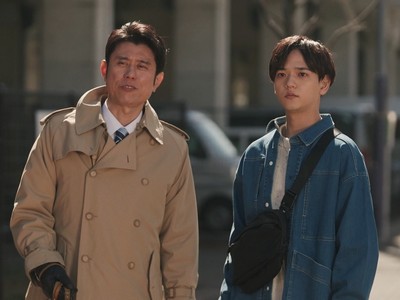
Oh, what a pleasant surprise! I'm so glad to get an epilogue special and a movie sequel from Don't Care for an Old Man's Underwear. For the special, it was a charming idea to tell the story from the dog's point of view. I like that there's a mystery of who broke the tanuki statue in front of the house. Everything is just quirky and lighthearted enough to hold my attention for 40 minutes. I'm quickly reminded of every character's charm. I hope to watch the movie soon because I'm really excited to see the sequel!
"I wanted a god watching over my family, too." SOBBING!!! 😭 Why did the kid just utter the most devastating line? When the mystery began, I didn't think it would end with an emotional moment like this. Aww! I like how Makoto is almost like a family counsellor, offering guidance to other middle-aged men and fixing one broken home at a time. I also love how Makoto is basically treating Daichi like an adopted son. Making good on his promise in the finale, Makoko has welcomed Daichi into his home and offered him family warmth.
Did Kakeru's actor have a growth spurt? I don't recall him being this tall during the series lol. Anyway, I love how this special shows his character's growth (emotionally, not just his height, haha). He's no longer the anxious teenager who won't leave his room. Now, he's a confident young man helping other kids who face a tough time at home. I'm proud of Kakeru's progress! And how empowering is it that the baseball gear turned from a painful childhood memory into a token of happiness? The storyteller impresses me because the metaphor is so clever!
Don't Care for an Old Man's Underwear Information
Links
Creator
Nerima Zim (練馬zim) is a Japanese artist who created the BL manga, Don't Care for an Old Man's Underwear. It was adapted into a live-action drama in 2024.
Directors
Don't Care for an Old Man's Underwear is led by three Japanese directors, including Takashi Ninomiya (二宮崇), Takehito Muroi (室井岳人), and Akihito Kajiya (加治屋彰人).